
Tunis: The Jewel of North Africa
Tunis, the capital of Tunisia, is a captivating blend of old and new. This city offers a rich tapestry of history, culture, and modernity, making it a must-visit destination. As you wander through the bustling streets, you'll encounter an array of stunning architecture, from ancient ruins to French colonial buildings. The medina, a UNESCO World Heritage site, is a labyrinth of narrow alleys filled with vibrant markets, traditional crafts, and historic mosques. Beyond the medina, Tunis boasts several fascinating museums, including the Bardo National Museum, which houses one of the world's largest collections of Roman mosaics. The city's modern districts, such as La Marsa and Carthage, offer chic cafes, upscale restaurants, and beautiful beaches. The fusion of Mediterranean and Arabic cultures is evident in the local cuisine, which features a delightful mix of flavors and ingredients. Tunis is also a gateway to explore the wider region of Tunisia. Just a short drive away, you can visit the ancient ruins of Carthage, the picturesque village of Sidi Bou Said, and the stunning landscapes of the Atlas Mountains. Whether you're a history buff, a foodie, or simply looking to relax by the sea, Tunis has something for everyone.
Local tips in Tunis
- Visit early in the morning to avoid the crowds at popular sites like the Bardo National Museum and the medina.
- Wear comfortable shoes for walking through the medina's narrow and often uneven streets.
- Try the local street food, such as brik and harissa, for an authentic taste of Tunisian cuisine.
- Use public transportation or taxis to get around, as parking can be challenging in busy areas.
- Visit the nearby village of Sidi Bou Said for breathtaking views and charming white-and-blue architecture.
Neighbourhoods in Tunis
Tunis: The Jewel of North Africa
Tunis, the capital of Tunisia, is a captivating blend of old and new. This city offers a rich tapestry of history, culture, and modernity, making it a must-visit destination. As you wander through the bustling streets, you'll encounter an array of stunning architecture, from ancient ruins to French colonial buildings. The medina, a UNESCO World Heritage site, is a labyrinth of narrow alleys filled with vibrant markets, traditional crafts, and historic mosques. Beyond the medina, Tunis boasts several fascinating museums, including the Bardo National Museum, which houses one of the world's largest collections of Roman mosaics. The city's modern districts, such as La Marsa and Carthage, offer chic cafes, upscale restaurants, and beautiful beaches. The fusion of Mediterranean and Arabic cultures is evident in the local cuisine, which features a delightful mix of flavors and ingredients. Tunis is also a gateway to explore the wider region of Tunisia. Just a short drive away, you can visit the ancient ruins of Carthage, the picturesque village of Sidi Bou Said, and the stunning landscapes of the Atlas Mountains. Whether you're a history buff, a foodie, or simply looking to relax by the sea, Tunis has something for everyone.
When is the best time to go to Tunis?
Iconic landmarks you can’t miss
Baths of Antoninus
Discover the grandeur of ancient Rome at the Baths of Antoninus, a breathtaking architectural marvel in Carthage, Tunisia.
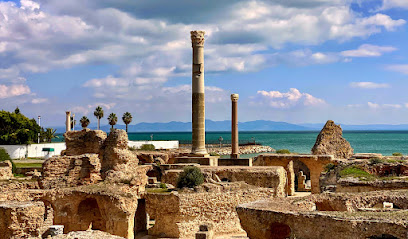
National Museum of Bardo
Explore the National Museum of Bardo, home to exquisite Roman mosaics and a treasure trove of Tunisian history, art, and culture.
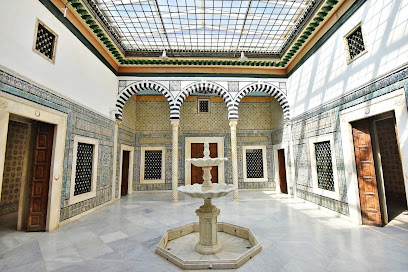
Ez-Zitouna Mosque
Discover the rich heritage and stunning architecture of Ez-Zitouna Mosque, a must-visit landmark in the heart of Tunis's Medina.
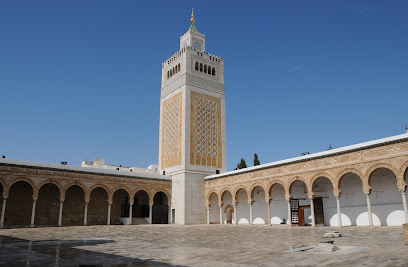
Avenue Habib Bourguiba Clocktower
Experience the rich history and vibrant culture at the iconic Avenue Habib Bourguiba Clocktower in Tunis, a must-see landmark for every traveler.
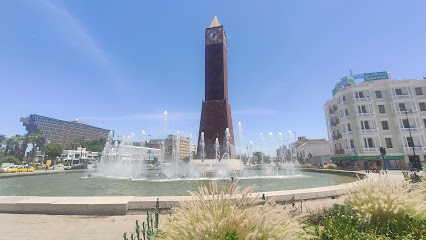
City of Culture
Discover the heart of Tunisian creativity at the City of Culture, a vibrant cultural center showcasing art, music, and heritage in the heart of Tunis.
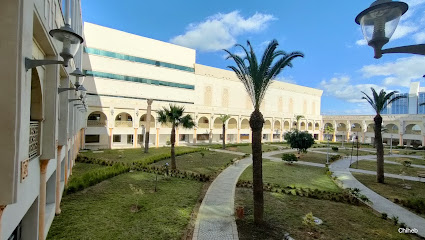
Central Market of Tunis
Discover the vibrant essence of Tunis at the Central Market, where local culture meets an array of delightful crafts and culinary treats.
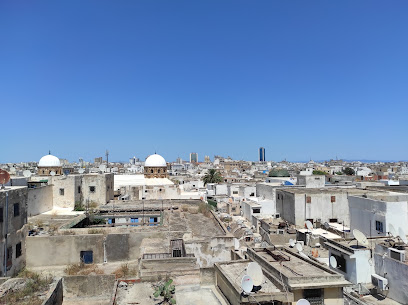
Punic Ports of Carthage
Explore the ancient Punic Ports of Carthage, a historical landmark showcasing the maritime legacy of the Carthaginian Empire and stunning Mediterranean views.
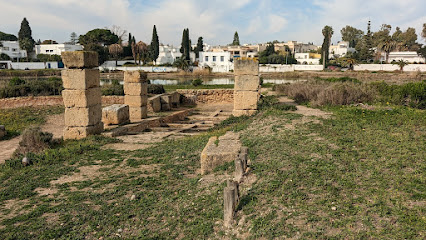
Tunis Science City
Discover the wonders of science and technology at Tunis Science City, an engaging museum perfect for all ages in the heart of Tunisia.
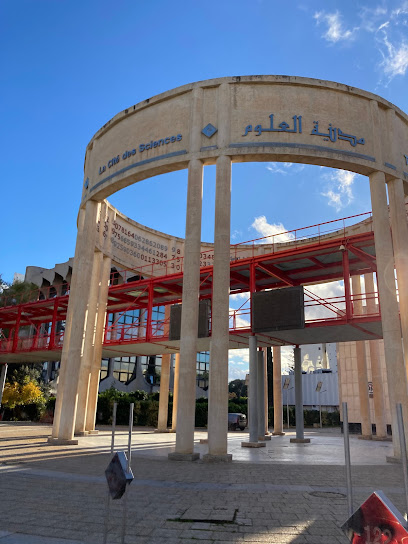
Victory Square
Explore Tunisia's vibrant culture at Victory Square, a historic hub of activity brimming with local flavors, art, and rich heritage.
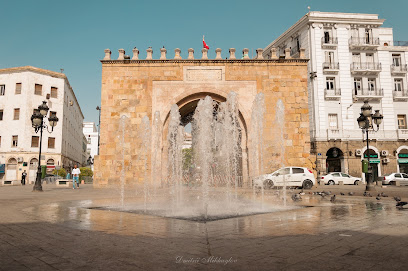
Cathedral of St Vincent de Paul and St Olivia of Palermo
Explore the architectural marvel of the Cathedral of St Vincent de Paul and St Olivia of Palermo, a stunning embodiment of Tunisian cultural and spiritual heritage.
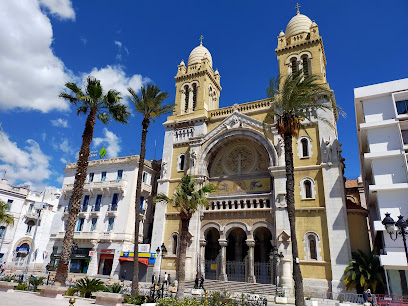
Les Ruines de Carthage
Uncover the rich history of Les Ruines de Carthage, a UNESCO World Heritage Site showcasing the splendor of ancient civilizations along Tunisia's stunning coastline.
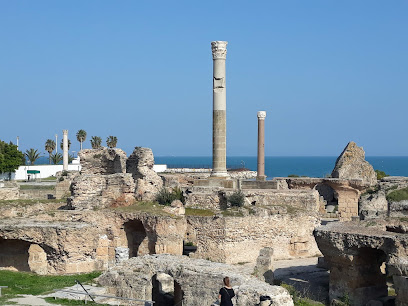
Salammbo Tophet
Explore Salammbo Tophet, a historical gem in La Goulette, Tunisia, where ancient Phoenician civilization comes to life through remarkable ruins and artifacts.
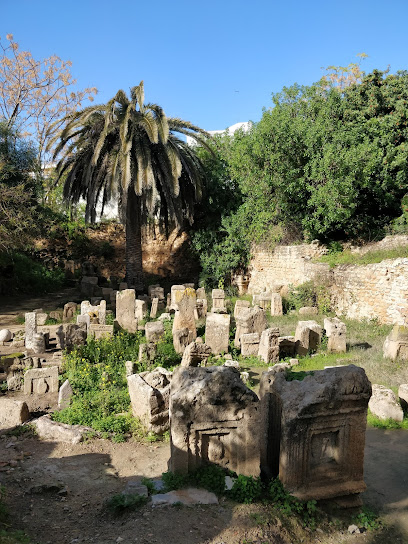
Ennejma Ezzahra Palace
Explore Ennejma Ezzahra Palace, a breathtaking historical landmark in Carthage, showcasing stunning architecture and rich Tunisian heritage.
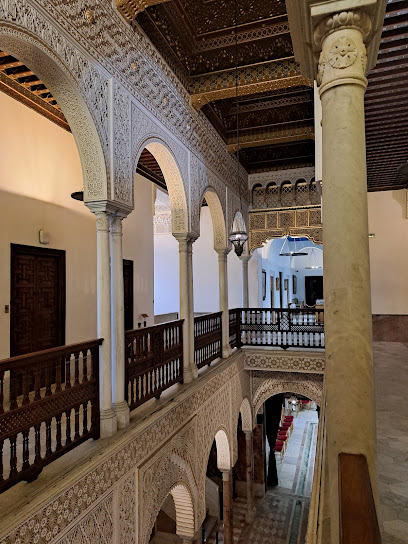
Site archéologique de Carthage
Explore the remnants of Carthage, a UNESCO World Heritage site, and immerse yourself in the rich history of this ancient Mediterranean civilization.
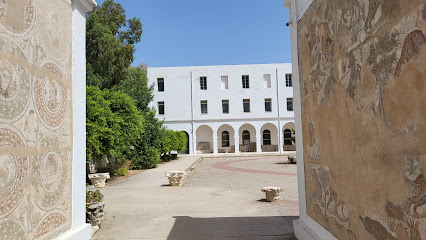
Dar El Medina
Experience the essence of Tunisian culture at Dar El Medina, a charming guest house in the heart of the historic Medina of Tunis.

Unmissable attractions to see
Baths of Antoninus
Discover the grandeur of ancient Rome at the Baths of Antoninus, a historical landmark in Carthage, where history meets breathtaking views.
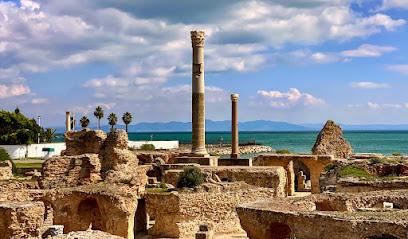
National Museum of Bardo
Uncover the rich cultural heritage of Tunisia at the National Museum of Bardo, home to exquisite mosaics and ancient artifacts from diverse civilizations.
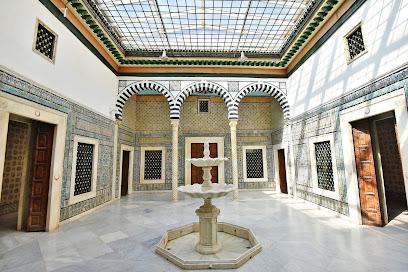
Ez-Zitouna Mosque
Discover the stunning Ez-Zitouna Mosque in Tunis, a historical gem and a symbol of Islamic culture, rich in architecture and spiritual significance.
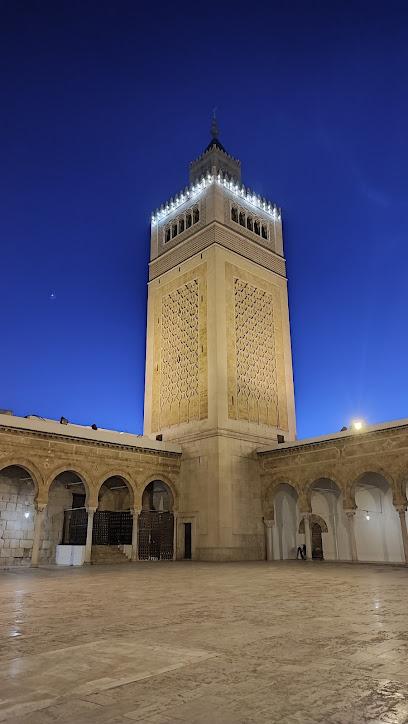
Carthage Land
Dive into the fun at Carthage Land, Tunis’s premier amusement and water park, where excitement awaits at every corner for families and thrill-seekers alike.
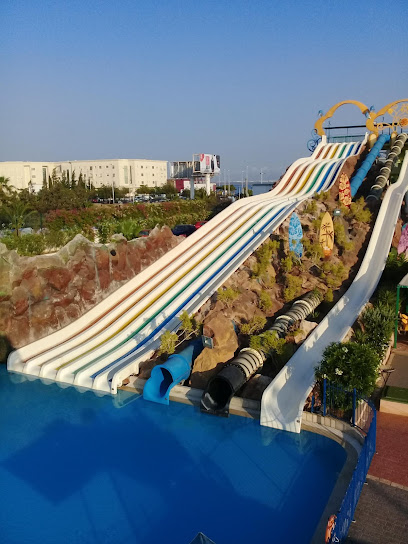
Dah Dah Happy Land Entertainment Park
Experience the thrill and excitement of Dah Dah Happy Land Entertainment Park, a top amusement park in Tunis for family fun and adventure.
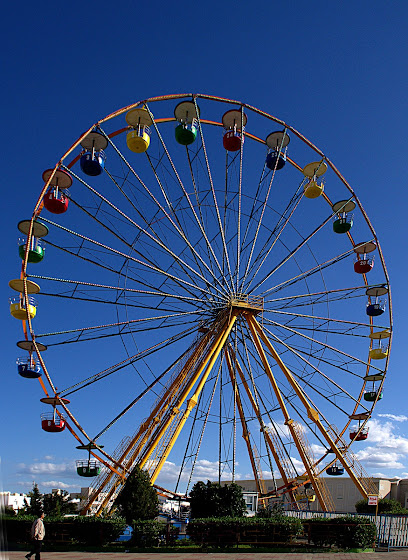
Belvedere Park
Explore the lush landscapes and cultural treasures of Belvedere Park, a serene escape in Tunis with stunning views and family-friendly attractions.
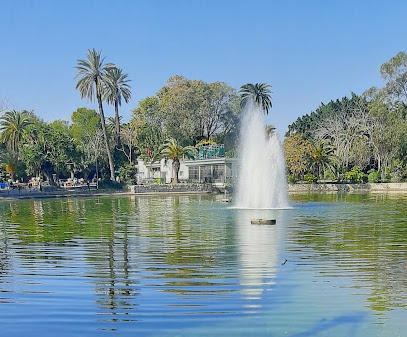
Sidi Bou Said
Explore the stunning blue and white village of Sidi Bou Said, a coastal gem in Tunisia known for its breathtaking views and rich cultural heritage.
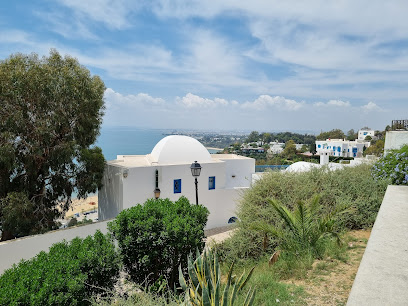
The Water Temple
Experience the serene beauty and historical significance of the Water Temple in Tunis, a perfect blend of culture, nature, and culinary delights.
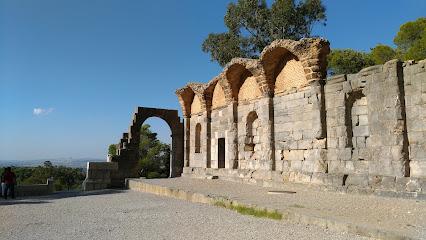
Dar El Annabi
Discover the enchanting Dar El Annabi in Carthage, Tunisia, a historical landmark and heritage museum showcasing the rich culture and history of the region.
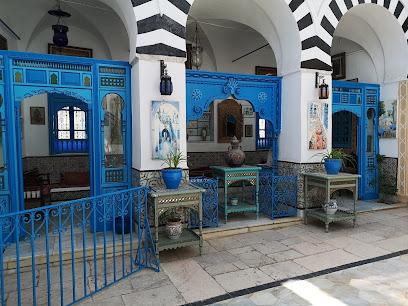
Punic Ports of Carthage
Discover the ancient maritime legacy at the Punic Ports of Carthage, a UNESCO World Heritage site showcasing the brilliance of the Carthaginian civilization.
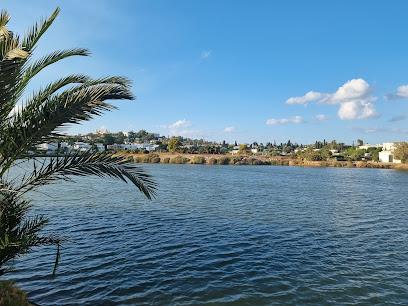
City of Culture
Discover the rich heritage of Tunisia at the City of Culture, a vibrant hub for art, performances, and cultural exhibitions in the heart of Tunis.
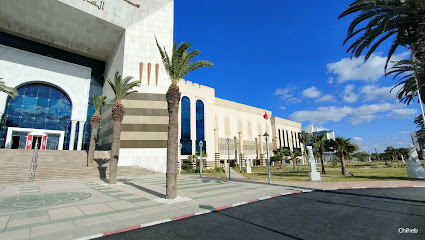
Carthage National Museum
Discover the timeless legacy of Carthage at the National Museum, where ancient history comes alive through remarkable artifacts and stunning views.
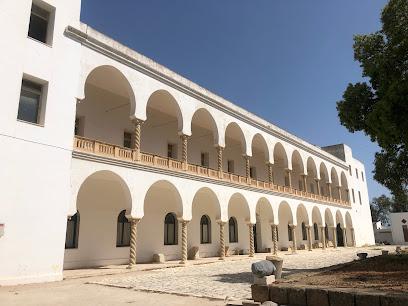
Zoo Tunis
Discover the wonders of wildlife at Zoo Tunis, where exotic animals and lush landscapes await your exploration.
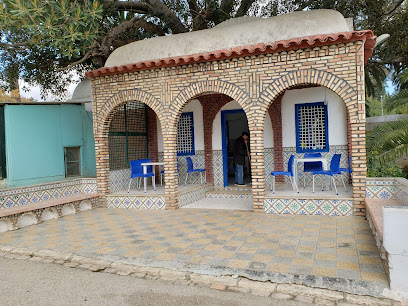
Tunis Science City
Discover the captivating world of science and innovation at Tunis Science City, where knowledge meets fun for all ages in a modern setting.
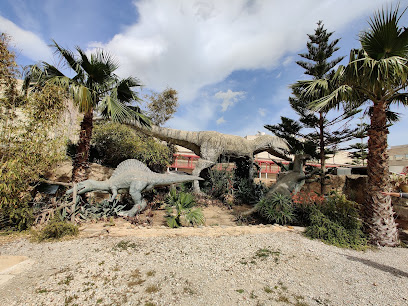
The Archaeological Site of Uthina
Explore the wonders of the Archaeological Site of Uthina in Tunisia, where ancient Roman history comes to life amidst stunning ruins and captivating mosaics.
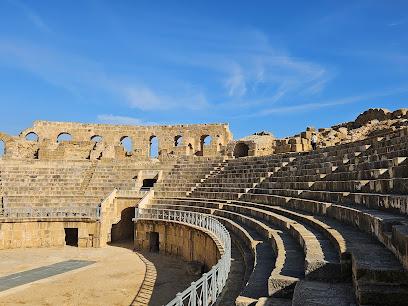
Essential places to dine
The Zink
Experience gourmet hamburgers like never before at The Zink in Tunis - where flavor meets creativity in every bite.
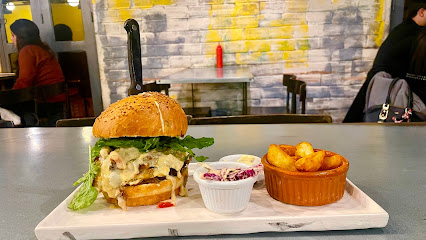
The Cliff
Discover exquisite Tunisian cuisine at The Cliff while enjoying breathtaking Mediterranean views in La Marsa.
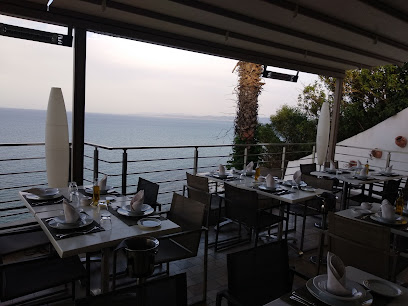
Sultan Ahmet
Discover authentic Turkish flavors at Sultan Ahmet in Tunis, where every meal is a celebration of culinary tradition.
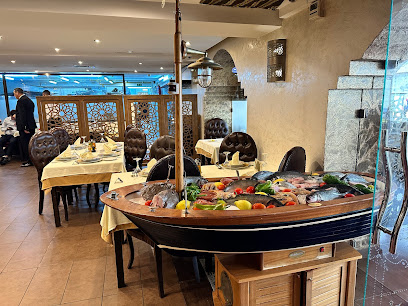
Dar El Jeld
Experience authentic Tunisian cuisine at Dar El Jeld, nestled in La Medina’s rich cultural tapestry with exquisite ambiance and flavors.
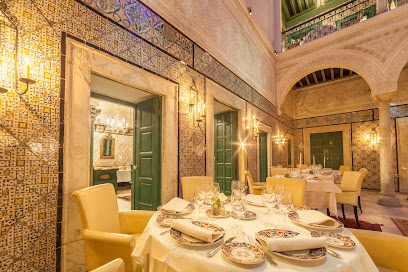
Fondouk El Attarine
Discover authentic Tunisian cuisine at Fondouk El Attarine in the heart of La Medina, where tradition meets flavor.
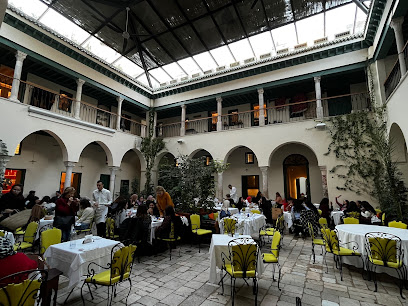
Salon de Thé Restaurant Biwa
Experience authentic Tunisian flavors at Salon de Thé Restaurant Biwa, where every meal is a celebration of culture and taste.
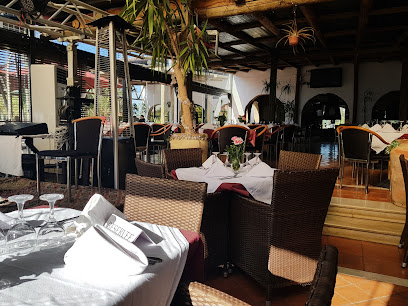
El Ali Restaurant & Cafe
Experience authentic Tunisian cuisine at El Ali Restaurant & Cafe in La Medina - where tradition meets taste!
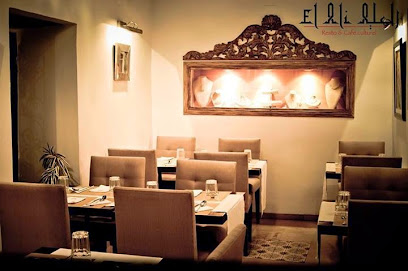
Dar Belhadj
Discover authentic Tunisian cuisine at Dar Belhadj in La Medina – where tradition meets taste in a charming atmosphere.
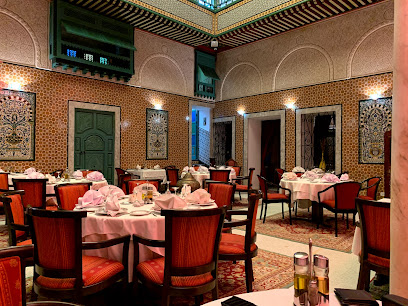
El Firma Restaurant
Discover authentic Tunisian cuisine at El Firma Restaurant in Tunis – where every meal tells a story of tradition and flavor.
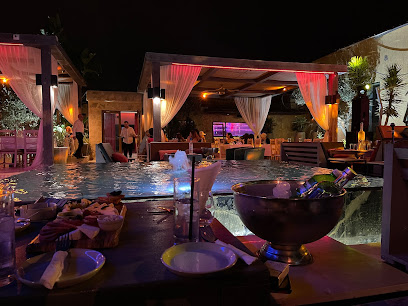
Le Réservoir Bistro
Discover exquisite flavors at Le Réservoir Bistro in Tunis - where gourmet hamburgers meet traditional meat dishes in an inviting atmosphere.
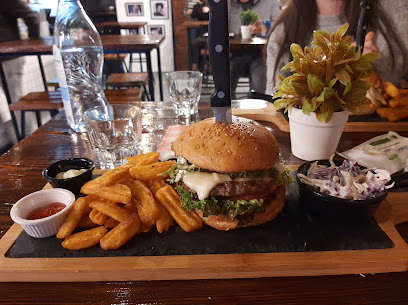
Restaurant Dar Slah
Experience the rich flavors of Tunisia at Restaurant Dar Slah in La Medina—where every dish tells a story.
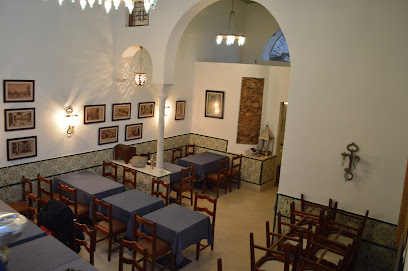
Lemdina
Experience the essence of Tunisia at Lemdina – where tradition meets taste in every delicious bite.
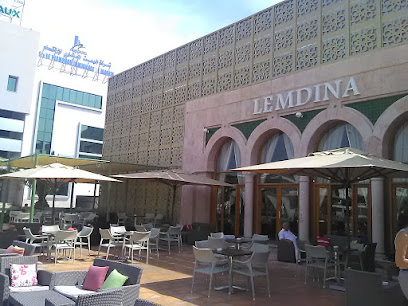
Restaurant L'Astragale
Experience exquisite haute French cuisine at Restaurant L'Astragale in Tunis – where tradition meets modern culinary artistry.
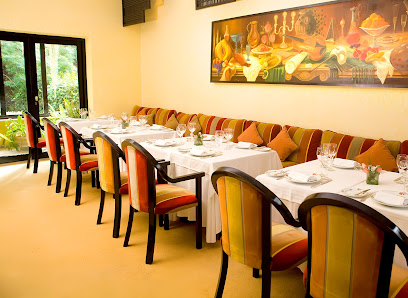
Dar Essafa
Experience authentic Tunisian flavors at Dar Essafa in La Medina - a culinary gem showcasing traditional dishes and vibrant culture.
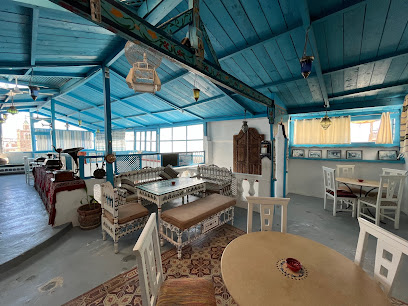
Cocodak
Discover the authentic tastes of Asia at Cocodak in Tunis, where vibrant flavors meet warm hospitality.
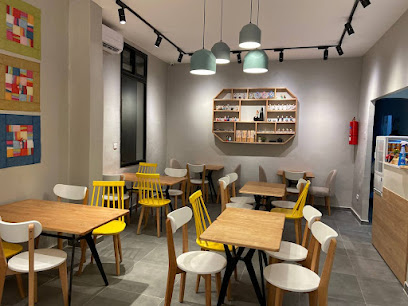
Markets, malls and hidden boutiques
Galerie 7
Discover Galerie 7 in Tunis: A vibrant hub for all your tech needs with diverse electronic shops and exceptional customer service.
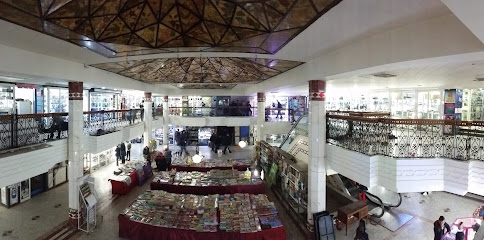
Bershka
Explore the latest fashion trends at Bershka in Tunis, offering stylish clothing and accessories for every occasion in a vibrant shopping atmosphere.
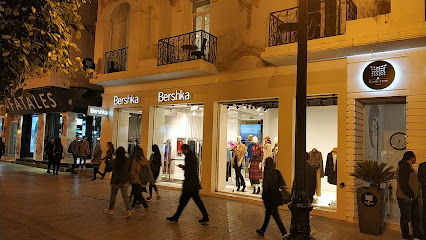
Kpop Shop Tunisia
Explore Kpop Shop Tunisia for a vibrant collection of K-Pop merchandise, from albums to apparel, embracing the culture of your favorite idols.
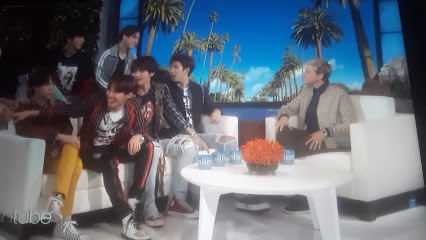
LYOUM
Explore LYOUM Boutique in Tunis for unique artisanal crafts and fashion that reflect the vibrant culture of Tunisia.
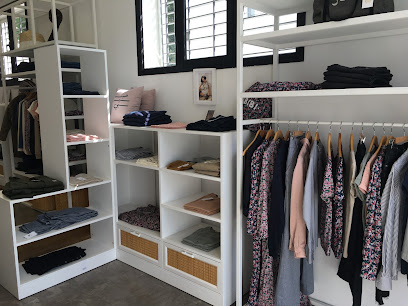
Muslim shop downtown
Discover authentic Tunisian culture and products at the vibrant Muslim shop downtown, a must-visit shopping destination in Tunis.
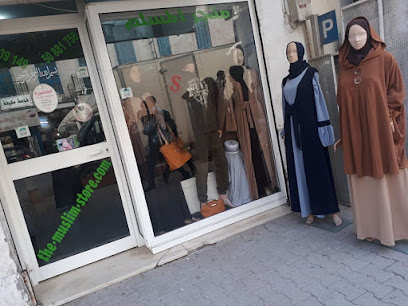
Gaming & More
Explore Gaming & More in Tunis for unique souvenirs, local crafts, and gaming merchandise to remember your visit.
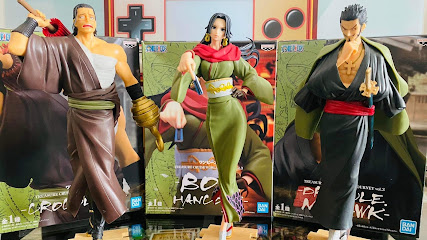
La Soukra
Discover unbeatable deals and a vibrant shopping atmosphere at La Soukra, the premier outlet mall in Tunis, perfect for fashion lovers and bargain hunters.
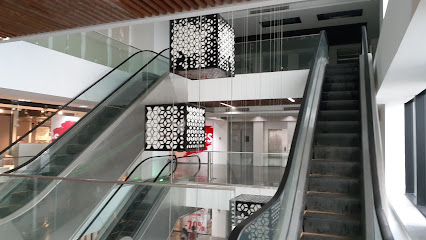
Stradivarius
Explore the latest trends in women's fashion at Stradivarius in Manar City, Tunis, where style meets sophistication.
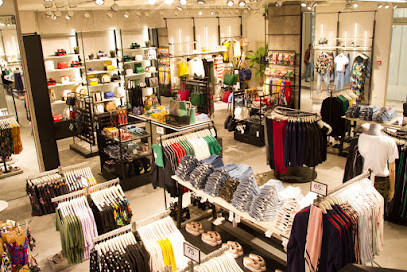
Square 5
Discover luxury shopping and exquisite boutiques at Square 5, a premier shopping destination in Tunis, perfect for tourists and locals alike.
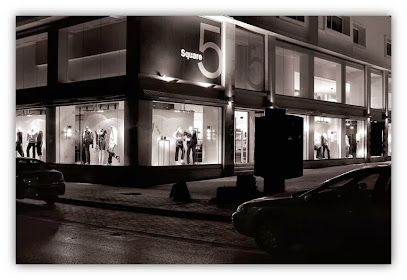
IRMAJOHNS
Discover the heart of Tunisian craftsmanship at IRMAJOHNS, where unique gifts and local treasures await every traveler.
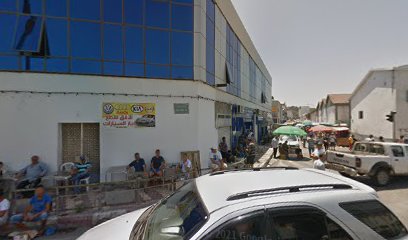
Boutique OMIZ
Discover stylish fashion at Boutique OMIZ in Nabeul, Tunisia – a perfect destination for trendy clothing and unique accessories.
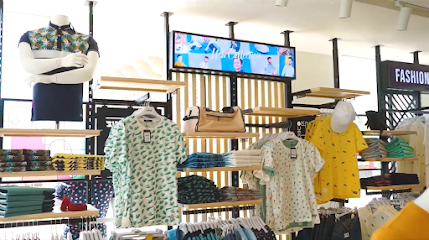
ROUMOUZ Lignes & Couleurs
Explore ROUMOUZ Lignes & Couleurs, a captivating gift shop in Tunis specializing in exquisite Tunisian ceramics, perfect for unique souvenirs.
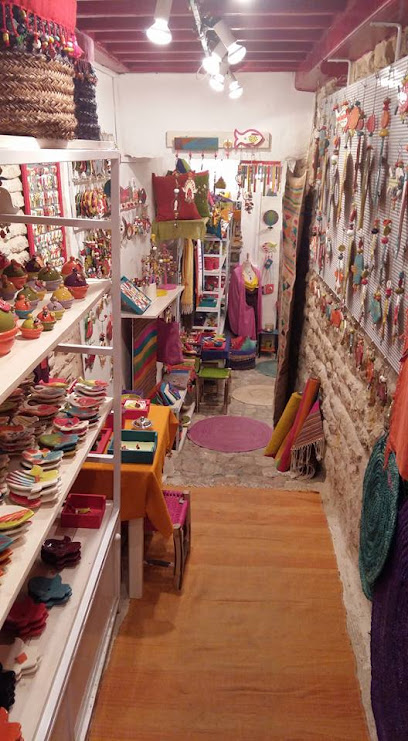
Tunisia-Market
Discover authentic Tunisian handicrafts and smart shopping solutions at Tunisia-Market, where culture meets craftsmanship.

Miracle
Explore the charm of Tunisian handicrafts at Miracle, a captivating gift shop filled with unique treasures reflecting local artistry and culture.
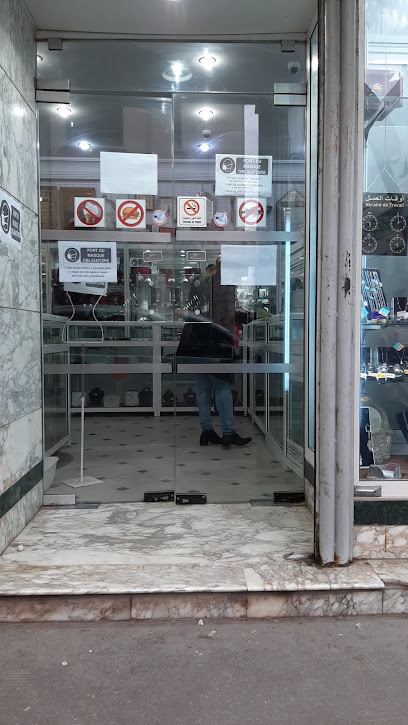
TDF - Tunis Duty Free
Experience tax-free shopping at Tunis Duty Free, where luxury meets local charm with exclusive products and local treasures.
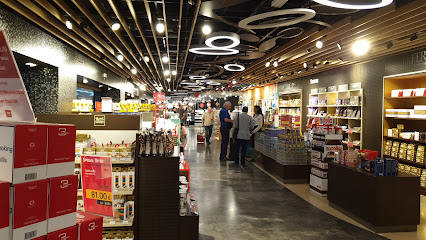
Essential bars & hidden hideouts
The Zoo Bar
Experience the vibrant nightlife and exquisite tapas at The Zoo Bar, a must-visit destination in the heart of Tunis.
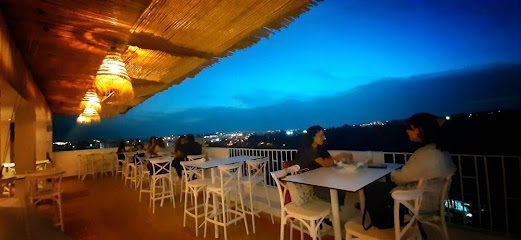
Bellini City Bar Lounge
Discover the vibrant atmosphere of Tunis at Bellini City Bar Lounge, where refreshing drinks meet lively entertainment in a beautiful setting.
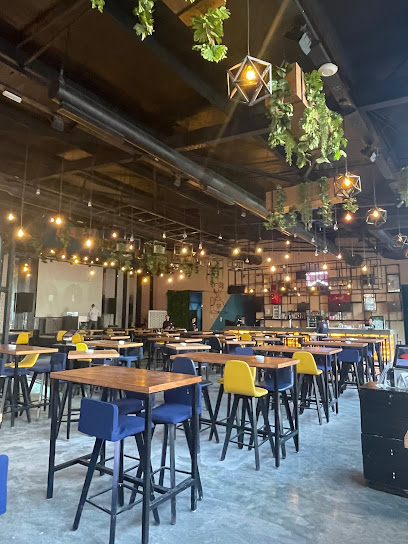
Le Taboo - Tunis
Experience the vibrant nightlife at Le Taboo, a stylish lounge in Tunis offering delightful cocktails and a chic atmosphere for relaxation and socializing.
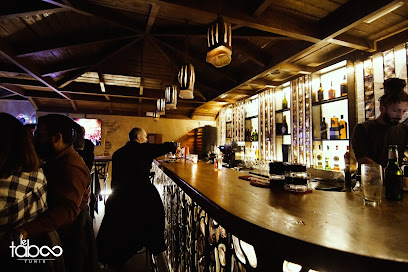
Bayt el fan
Discover the vibrant nightlife of Tunis at Bayt el Fan, a cultural hub offering good music, great drinks, and a lively atmosphere.
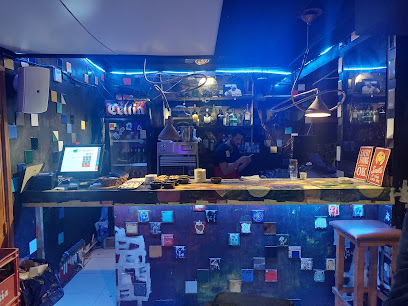
Le Muret De Tunis
Experience the lively atmosphere and exquisite drink selection at Le Muret De Tunis, the perfect bar for tourists seeking relaxation and local flavor.
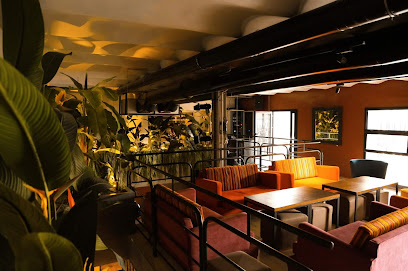
Le Schilling
Experience the vibrant nightlife of Tunis at Le Schilling, a lively bar known for its eclectic atmosphere and diverse drink selections.
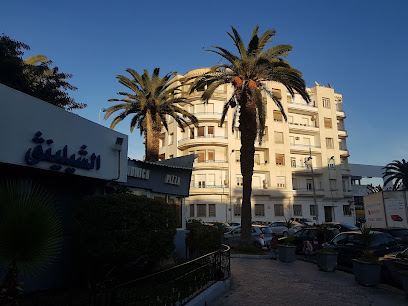
Le Pub Gentleman
Experience the vibrant nightlife of Tunis at Le Pub Gentleman, where great drinks, live music, and a welcoming atmosphere await.
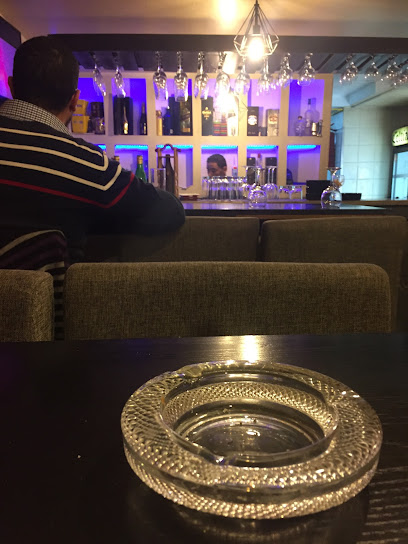
Le Théâtre De Marionettes Resto Bar
Experience the vibrant flavors of Tunis at Le Théâtre De Marionettes Resto Bar, where tapas and local culture come together for an unforgettable meal.
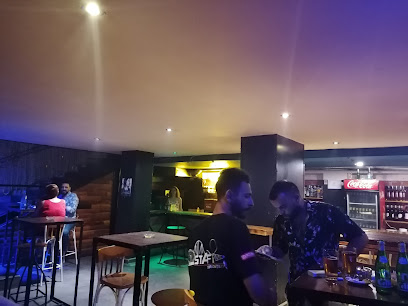
Infinity Lounge & Rooftop Laico Tunis
Discover the breathtaking views and vibrant atmosphere at Infinity Lounge & Rooftop Laico Tunis, the perfect place to unwind in the heart of the city.
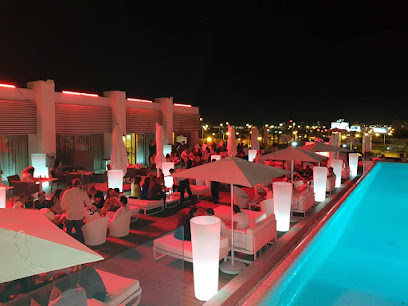
Restaurant Capri
Discover Restaurant Capri in Tunis – a vibrant bar offering authentic Tunisian cuisine and a lively atmosphere for all visitors.
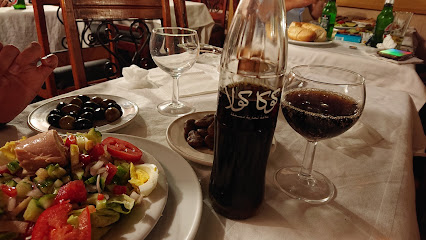
Bar Les Sportifs بار علي ورق
Experience the vibrant nightlife and delicious drinks at Bar Les Sportifs, a must-visit bar in the heart of Tunis.
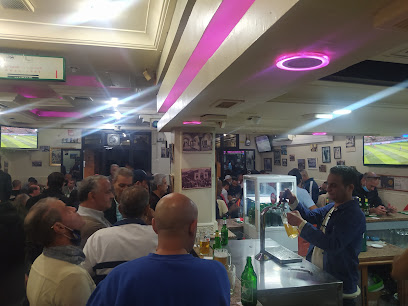
Bar L'Avenue
Discover the vibrant atmosphere of Bar L'Avenue, a popular Tunisian bar perfect for unwinding with drinks and enjoying local culture.
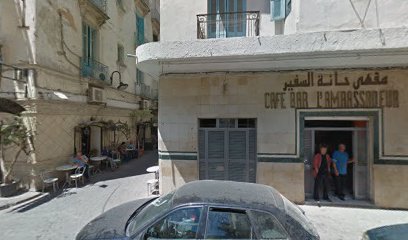
Bar El Mestiri
Discover the lively atmosphere of Bar El Mestiri, a favorite spot in Tunis offering a rich blend of local culture and refreshing drinks.
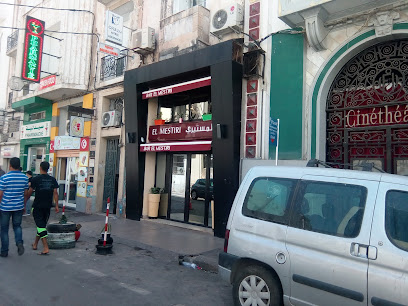
Le 4eme
Experience the vibrant nightlife of Tunis at Le 4eme, a chic bar serving delightful drinks and a welcoming atmosphere.
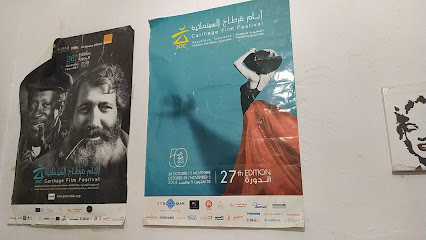
Local Phrases
-
- Helloمرحبا
[marhaba] - Goodbyeمع السلامة
[maa as-salama] - Yesنعم
[naam] - Noلا
[laa] - Please/You're welcomeمن فضلك/على الرحب والسعة
[min fadlik/ala ar-rahb was-sa'a] - Thank youشكرا
[shukran] - Excuse me/Sorryعذرا
[aathara] - How are you?كيف حالك؟
[kayfa halak?] - Fine. And you?بخير. وأنت؟
[bikhayr. wa anta?] - Do you speak English?هل تتكلم الإنجليزية؟
[hal tatakallam al-ingliziyya?] - I don't understandأنا لا أفهم
[ana la afham]
- Helloمرحبا
-
- I'd like to see the menu, pleaseأرغب في رؤية القائمة، من فضلك
[urghab fi ru'yyat al-qa'imah, min fadlik] - I don't eat meatأنا لا آكل اللحم
[ana la aakul al-lahm] - Cheers!في صحتك!
[fi sahtik!] - I would like to pay, pleaseأود أن أدفع، من فضلك
[awad an adfa', min fadlik]
- I'd like to see the menu, pleaseأرغب في رؤية القائمة، من فضلك
-
- Help!النجدة!
[an-najda!] - Go away!امش غير!
[imsh ghayr!] - Call the Police!اتصل بالشرطة!
[itassil bish-shurtah!] - Call a doctor!اتصل بطبيب!
[itassil bittabib!] - I'm lostلقد ضللت الطريق
[lakad dalalt at-tariq] - I'm illأنا مريض
[ana mareed]
- Help!النجدة!
-
- I'd like to buy...أرغب في شراء...
[urghab fi shira...] - I'm just lookingأنا أتفرج فقط
[ana atfarij faqat] - How much is it?كم هو ثمنه؟
[kam huwa thamanuh?] - That's too expensiveهذا غالي جدا
[hatha ghali jiddan] - Can you lower the price?هل يمكنك تخفيض السعر؟
[hal yumkinuk takhfid as-sa'r?]
- I'd like to buy...أرغب في شراء...
-
- What time is it?كم الساعة؟
[kam as-sa'ah?] - It's one o'clockالساعة الواحدة
[as-sa'ah al-wahidah] - Half past (10)الساعة العاشرة والنصف
[as-sa'ah al-'ashirah w-an-nisf] - Morningالصباح
[as-sabah] - Afternoonالظهر
[adh-dhuhur] - Eveningالمساء
[al-masa] - Yesterdayأمس
[ams] - Todayاليوم
[al-yawm] - Tomorrowغدا
[ghadan] - 1واحد
[wahid] - 2اثنين
[ithnayn] - 3ثلاثة
[thalathah] - 4أربعة
[arba'ah] - 5خمسة
[khamsah] - 6ستة
[sittah] - 7سبعة
[sab'ah] - 8ثمانية
[thamaniah] - 9تسعة
[tis'ah] - 10عشرة
[asharah]
- What time is it?كم الساعة؟
-
- Where's a/the...?أين هو/هي...؟
[ayn huwa/hi...?] - What's the address?ما هو العنوان؟
[ma huwa al-anaan?] - Can you show me (on the map)?هل يمكنك أن تريني (على الخريطة)؟
[hal yumkinuk an tureeni (ala al-kharitah)?] - When's the next (bus)?متى يكون الحافلة القادمة؟
[mata yakoon al-hafilah al-qadimah?] - A ticket (to ....)تذكرة (إلى...)
[tadhkirah (ila...)]
- Where's a/the...?أين هو/هي...؟
History of Tunis
-
Tunis, the capital city of Tunisia, has a rich and diverse history that begins with its foundation by the Berber people around the 9th century BC. It was originally a small settlement strategically located near the Mediterranean Sea, which later became a significant trade hub due to its proximity to Carthage.
-
During the Carthaginian era, Tunis served as a satellite to the mighty city of Carthage. It played a crucial role in the economic and military strategies of the Carthaginian Empire from the 6th to the 2nd century BC. The remnants of this era can still be seen in the ruins of Carthage, a UNESCO World Heritage site located just outside modern-day Tunis.
-
After the defeat of Carthage in the Third Punic War in 146 BC, Tunis came under Roman rule. The Romans transformed it into a prosperous city known as 'Tynes'. Roman architecture and urban planning left a lasting imprint, with ruins such as the Antonine Baths and the Roman Amphitheatre in nearby Carthage.
-
Following the decline of the Roman Empire, Tunis came under Byzantine control in the 5th century AD. The city experienced significant changes with the arrival of Arab-Muslim conquerors in the 7th century, who introduced Islam and laid the foundation for the city's Islamic culture and architecture, including the construction of the Al-Zaytuna Mosque.
-
The Hafsid Dynasty, ruling from the 13th to the 16th century, marked a golden age for Tunis. The city became the capital of a flourishing kingdom and a center of learning and culture. This period saw the construction of many significant buildings and the expansion of the medina, which remains a focal point of Tunis today.
-
In the late 16th century, Tunis fell under Ottoman rule. The Ottomans established the city as the capital of the Regency of Tunis. This period saw the blending of Ottoman architectural styles with existing local traditions, resulting in the unique and distinctive appearance of the city's historic buildings.
-
In 1881, Tunis became part of the French Protectorate of Tunisia. This era brought about significant changes, including modernization efforts, the introduction of European architectural styles, and the expansion of the city beyond its traditional medina. The French influence is still evident in the wide boulevards and colonial buildings of the Ville Nouvelle.
-
Tunisia gained independence from France in 1956, with Tunis as its capital city. Since then, Tunis has grown into a vibrant metropolis, blending its rich historical heritage with modern development. The city has witnessed significant political and social changes, particularly during the Tunisian Revolution in 2011, which sparked the wider Arab Spring movement.
-
Tunis is renowned for its cultural heritage, including its music, cuisine, and festivals. The medina of Tunis, a UNESCO World Heritage site, is a maze of narrow streets, bustling souks, and historic buildings that reflect the city's diverse influences. The city's cultural life is further enriched by its museums, such as the Bardo National Museum, which houses an extensive collection of Roman mosaics and artifacts.
Tunis Essentials
-
Tunis is served by the Tunis-Carthage International Airport (TUN), which is located approximately 8 kilometers northeast of the city center. Several international airlines operate flights to and from major European, African, and Middle Eastern cities. Once you arrive at the airport, you can take a taxi, which is the most convenient option, or use the airport shuttle service to reach the city. It is also possible to arrive in Tunis by ferry from various Mediterranean ports, including Marseille and Palermo.
-
Tunis offers a variety of transportation options. The city boasts a reliable and affordable public transportation system, including buses, trams, and the TGM suburban train connecting Tunis to the northern suburbs. Taxis are widely available and relatively inexpensive but make sure the meter is running or agree on a fare beforehand. For a more flexible option, consider renting a car, although traffic can be heavy, especially during peak hours. Biking is not very common in Tunis due to the lack of dedicated bike lanes.
-
The official currency in Tunisia is the Tunisian Dinar (TND). Credit cards are widely accepted in hotels, restaurants, and larger shops, but it is advisable to carry some cash for smaller establishments and markets. ATMs are plentiful in Tunis, and you can withdraw cash using international debit or credit cards. Currency exchange services are available at the airport, banks, and exchange offices throughout the city.
-
Tunis is generally a safe city for tourists, but like any large urban area, it is wise to take standard precautions. Avoid walking alone at night in unfamiliar areas and be cautious with your belongings in crowded places. Areas such as the Medina, while rich in history and culture, can be hotspots for pickpocketing. Neighborhoods like Ettadhamen and Douar Hicher have higher crime rates and are best avoided by tourists.
-
In case of emergency, dial 197 for the police, 198 for the ambulance service, and 190 for the fire department. Tunis has several hospitals and clinics that provide medical care, including the Charles Nicolle Hospital and the Rabta Hospital. It is advisable to have travel insurance that covers medical emergencies. Pharmacies are readily available for over-the-counter medications and minor health issues.
-
Fashion: Do dress modestly, especially in religious and traditional areas. Avoid overly revealing clothing. Religion: Do respect local customs and traditions. When visiting mosques, dress modestly and remove your shoes. Public Transport: Do be respectful and offer your seat to elderly passengers. Don't eat or drink on public transport. Greetings: Do greet people with a handshake. Men may place their hand over their heart as a sign of respect. Eating & Drinking: Do try local dishes and accept hospitality graciously. Don't refuse food or drink offerings, as it can be considered impolite.
-
To experience Tunis like a local, visit the bustling Medina and explore its narrow streets, souks, and historic sites. Enjoy a coffee or mint tea at a traditional café and engage with locals who are often friendly and willing to share their culture. Don't miss the Bardo National Museum, home to one of the world's most significant collections of Roman mosaics. For a unique experience, take a stroll along the Avenue Habib Bourguiba, the city's main thoroughfare, and enjoy the lively atmosphere.
Trending Landmark in Tunis
-
Baths of Antoninus
-
National Museum of Bardo
-
Ez-Zitouna Mosque
-
Avenue Habib Bourguiba Clocktower
-
City of Culture
-
Central Market of Tunis
-
Punic Ports of Carthage
-
Tunis Science City
-
Victory Square
-
Cathedral of St Vincent de Paul and St Olivia of Palermo
-
Les Ruines de Carthage
-
Salammbo Tophet
-
Ennejma Ezzahra Palace
-
Site archéologique de Carthage
-
Dar El Medina
Nearby Cities to Tunis
-
Things To Do in Hammamet
-
Things To Do in Bizerte
-
Things To Do in Sousse
-
Things To Do in Monastir
-
Things To Do in Annaba
-
Things To Do in Sfax
-
Things To Do in Palermo
-
Things To Do in Constantine
-
Things To Do in Djerba
-
Things To Do in Xlendi
-
Things To Do in Tozeur
-
Things To Do in Marsalforn
-
Things To Do in Gozo
-
Things To Do in Xaghra
-
Things To Do in Xewkija


















